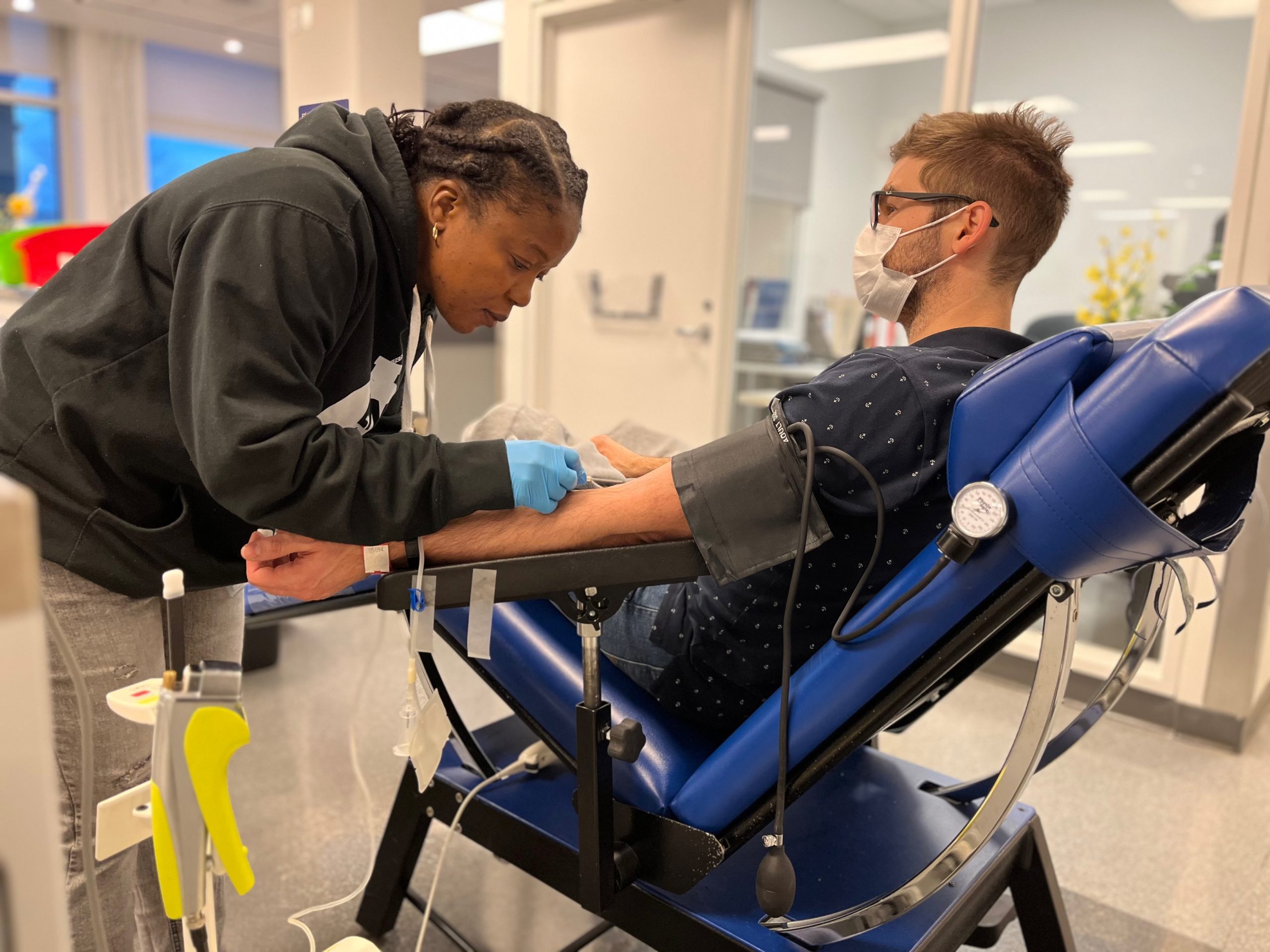Blood donation eligibility becomes more inclusive in Quebec
Posted December 29, 2022 5:35 pm.
Last Updated December 29, 2022 6:36 pm.
Héma-Québec will now assess those who would like to donate blood or plasma on an individual basis.
This change would eliminate the three-month blanket deferral period for all men who have had sex with men – and see all donors assessed individually, on whether they’ve engaged in risky sexual behaviours, regardless of their gender identity or sexuality.
Spokesperson for Héma-Québec, Laurent Paul Ménard says “we are finally able to have a way to allow more men who are having sex with other men … to be able to give blood, to donate blood and be able at the same time to keep all the safety measures.”
Ménard explains that this change to become more inclusive “removes a barrier” and “a big frustration that was expressed within the communities belonging to sexual diversity.”
As for the executive director of RÉZO- Santé et mieux-être des hommes gais et bisexuels, cis et trans, Alexandre Dumont Blais, the fact that a man having intercourse with another man was a criterion against donating blood, “was putting all people together and assuming that they were having the same practices.”
The new gender-neutral questionnaire, which has been in effect since December 4th, asks each individual about their sexual behaviour. Those who have had multiple partners or a new partner within the past three months will be deferred.
The more inclusive practice is something Alexandre Dumont Blais from RÉZO- Santé is happy to see.
“Everybody now will have to answer the same questions based on your sexual practices and behavior. So it’s not just being gay or having sex with men. It’s whatever you do with who. It’s based on the risk that you have through your personal practices,” he explains.
But that means some heterosexual prospective donors may no longer apply to donate blood.
When asked if Héma-Québec is foreseeing a rise in blood donations, Ménard says no.
“It is not because we remove a barrier, that it means there is a social responsibility for a group to donate blood,” but adds the blood agency will now look for more ways to start a dialogue with those previously impacted.
The shift comes after Health Canada’s March 25 decision to change its policy for those wanting to donate blood or plasma.
“When people go there to give blood, it’s because they want to help. They want to do a service for society. So presuming that you are at risk, and it’s a criteria to not be able to give blood. I think it was hurtful for our communities before, and it’s a positive message that we put that aside. And your sexual orientation is not anymore a criterion,” according to Dumont Blais.
A change Ménard says that Héma-Québec has long asked for.
“Finally, we can say that Quebec has joined the pack leaders for that kind of approach, which take into consideration the safety of the blood supply and also makes blood donation more accessible for a certain person, who were not able to make that donation in the past,” added Ménard.
A similar approach has already been in effect in the United Kingdom since June 2021 with no negative impacts, says Laurent Paul Ménard.

The eligibility of those who would like to donate blood in Quebec will now be assessed on an individual basis rather than on a person’s sexuality.
Photo Credit: CityNews/Martin Daigle








